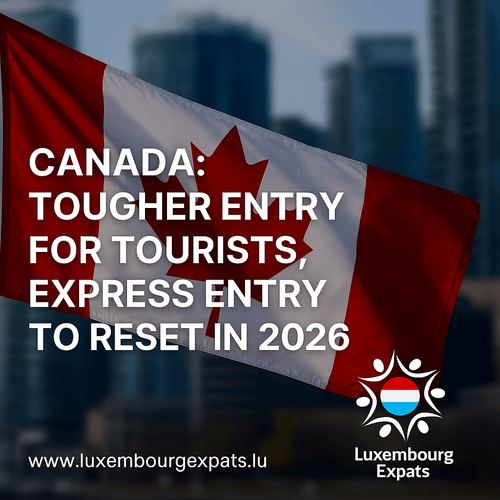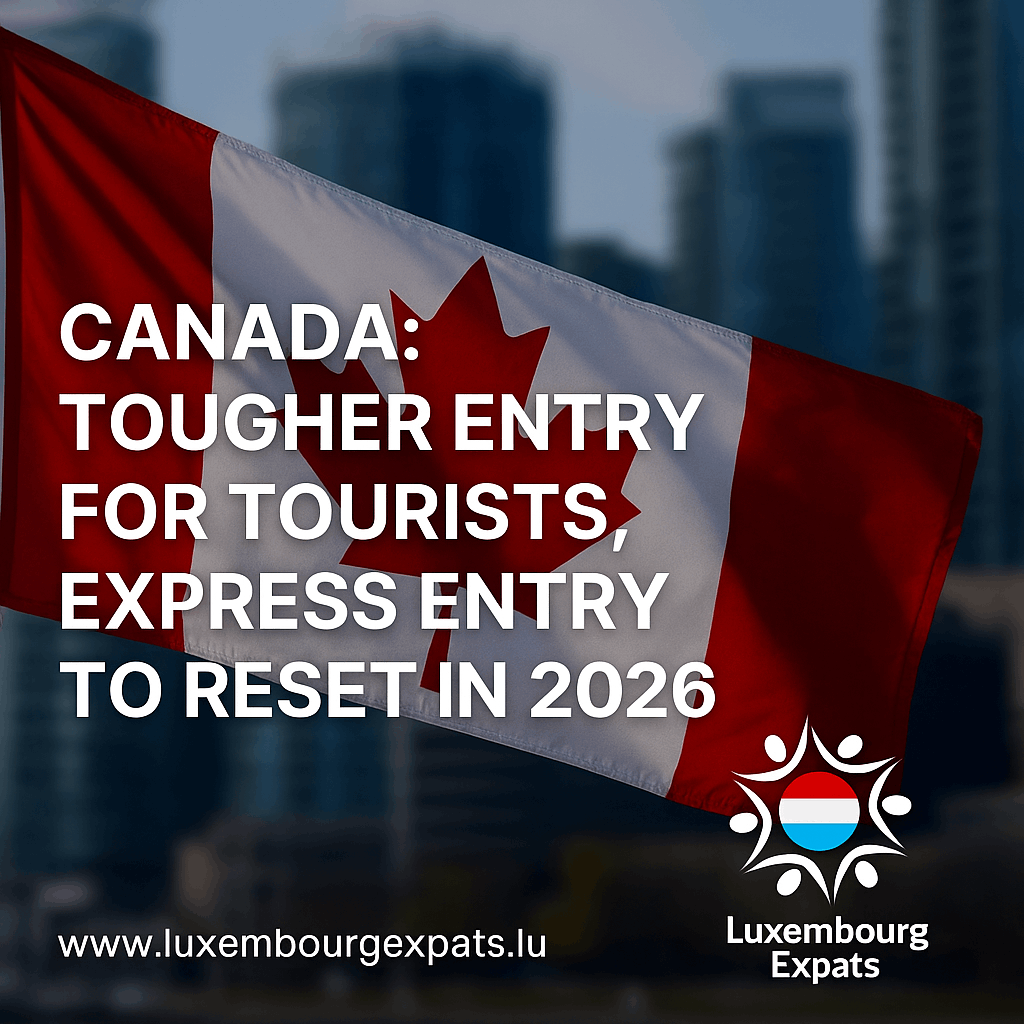Canada’s Two-Way Immigration Shift: Stricter Border Checks Now, Selective Migration in 2026
LuxembourgPosted on 12 August 2025 by Team · 3 min readCanada’s approach to immigration is undergoing a marked transformation — tightening at the entry point for tourists and recalibrating long-term skilled migration under a more selective system. For global travellers, and especially professionals based in Europe, this signals a shift from procedural convenience to strategic gatekeeping.
More Questions at the Border: Canada’s New Rules for Tourists
Beginning this summer, visitors to Canada — including citizens from visa-exempt countries like Luxembourg — may experience enhanced border checks.
Canadian immigration officers now have broader discretion to:
- Question the purpose and duration of a visit
- Request proof of financial means, return travel, or accommodation
- Examine travel history, intent, and ties to home country
- Flag inconsistencies using AI-based risk tools
The Electronic Travel Authorization (eTA) remains valid for short visits, but entry is no longer automatic. Even frequent travellers may be pulled aside for secondary screening, raising concerns about delays and uncertainty.
This move comes amid a growing global trend: governments increasing surveillance and vetting of travellers to combat overstays, illegal work, and perceived security risks. Canada’s message is clear — “visa-free” is not the same as “question-free.”
For EU-based travellers, particularly those with family or business links in Canada, the new rules require a more documented and prepared approach, even for leisure trips.
Express Entry Overhaul for 2026
Simultaneously, Canada is preparing a strategic reset of its Express Entry immigration system, scheduled to launch in early 2026. While the core points-based structure remains, the new focus is on high-impact human capital — not just any skilled worker, but the right kind of future-ready leader.
A new “Leadership and Innovation” category will be introduced, designed to prioritise:
- Entrepreneurs and startup founders
- Experts in artificial intelligence, climate tech, and biotech
- Professionals with a track record in global policy, sustainability, and innovation ecosystems
Applicants under this category will benefit from expedited processing and tailored pathways, reflecting Canada’s ambition to align immigration with its long-term economic and technological agenda.
Officials say this is not about closing doors — but about focusing on quality and alignment with national interests. For expats in Luxembourg and across Europe’s knowledge economy, the opportunity is clear — but the bar is rising.
This Matters for Luxembourg’s Global Residents
Luxembourg’s expat community is among the most internationally mobile in the EU — with many holding dual passports, working in global firms, or managing cross-border lives. Canada’s changes affect both the frequent traveller and the strategic migrant:
- Tourist visits now require stronger documentation, even for short family or business trips.
- Long-term relocation requires alignment with innovation sectors — no longer just meeting basic work experience and education criteria.
These developments are part of a broader trend: immigration is moving away from volume and toward selectivity, driven by national competitiveness, security, and demography.
For those eyeing Canada, the key takeaway is not fear — but readiness. Whether you're planning a trip or a future move, it’s time to treat borders not just as checkpoints, but as conversations — ones that demand clarity, purpose, and precision.
Join the Luxembourg Expats Community luxembourgexpats.lu
I am your contact
Team
Chat








